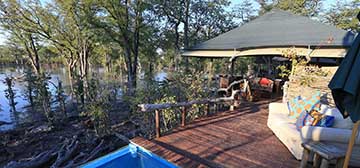
Hyena Pan
- Khwai Private Reserve, BotswanaThe reserve borders some of Botswana’s finest game viewing areas, with Moremi National Park to the south and Chobe National Park to the east.
Duba Explorers Camp in Northern Botswana is tucked away in the northeast corner of the Duba Plains concession, a 33 000 hectares private reserve in the Okavango Delta. Due to its location at the northern reaches of the Okavango Delta, the surroundings are dominated by permanent floodplain, interspersed with seasonal floodplains and grasslands and pockets of mopane and acacia woodlands. Under a canopy of mature jackalberry, leadwood, mangosteen and sycamore fig trees the camp has year-round shade. The camp’s location provides clear, unobstructed views across the surrounding water channels and allows cool breezes through the camp and guest tents.
The camp, part of our Explorers Collection and designed by Dereck and Beverly Joubert, explorers themselves, embodies the golden age of safaris and the spirit of exploration. The camp consists of five tents of airy canvas on raised decking stylishly furnished with campaign writing desk, private verandah and en-suite facilities. Guests wake up to panoramic views of the Delta floodplains and, during the flood season, the water channels link to open water filled with flowering water lilies and tall papyrus. The main area is set under sweeping marquee canvas, on raised decking with an open-concept dining and lounge area. Being part of a floodplain for most of the year, the camp is on an island surrounded by beautiful landscapes and water courses. The camp is accessible only by two, gum pole bridges. During your siesta, lounge on the daybed on your veranda, absorbing the peacefulness and tranquillity of your surroundings. During the flood season you might even be lucky to catch sight of spotted neck otters swimming and eating. Listen out for the prolific birdlife. At night, let the hippos sing you a to sleep. Sometimes, the roar of a lion cracks through the night as he calls out to his pride.
During a stay at Duba Explorers Camp guests step into the shoes of the early adventurers. Explore the water channels associated with the Ngoga River system by boat or traditional canoes (mekoro), meandering through channels created by hippos and elephant. The mekoro allows you to glide silently through the channel systems and experience an undisturbed water world around you. With over 400 bird species, birding is unsurpassed, with spectacular species like the malachite kingfisher zipping past you in a burst of colour. Vehicle safaris in this paradise allow for exciting encounters with the predators who are resident in the area. On guided walks explore the islands, wetlands and plains, following the tracks and interpreting the signs of the wild. Guests might even be lucky enough to get a glimpse of a rare sitatunga or an elusive leopard. Enjoy the excitement of catch and release fishing where one can study the various delta fish species up close.
This is a great activity during mid-day siesta. Make sure you’re with a guide. During January and February there is a moratorium on fishing. Catch-and-release fishing only.
Another huge benefit of staying within the conservancies is the ability to appreciate the stunning landscape on foot, peacefully, without the noise of engines. We highly recommend this unforgettable experience. Usually early morning or evening is the best time, as the middle of the day is too hot to venture out of the shade. Wear good walking shoes, a hat, and neutral coloured clothing so as not to alarm the wildlife, and take binoculars. Your guide will have water for you. Walks are led by licensed guides with firearm training.
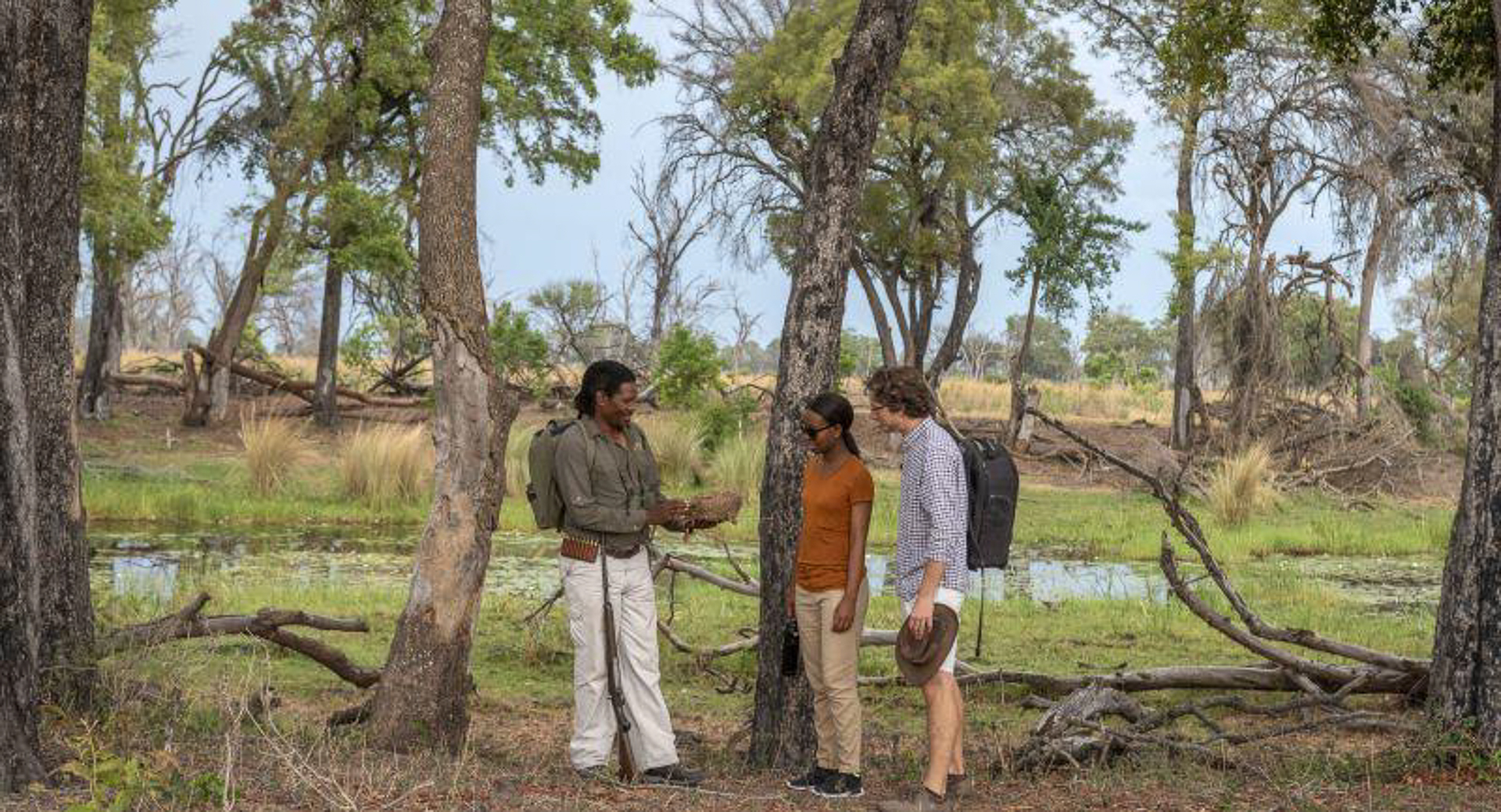
Navigating through the Okavango Delta's network of waterways is an invigorating way to get a sense of the scope of this huge wetland. You’ll undoubtedly have wonderful birding and maybe even some hippo, buffalo and elephant sightings. (Boating is a seasonal activity, typically between June and September but varies seasonally).
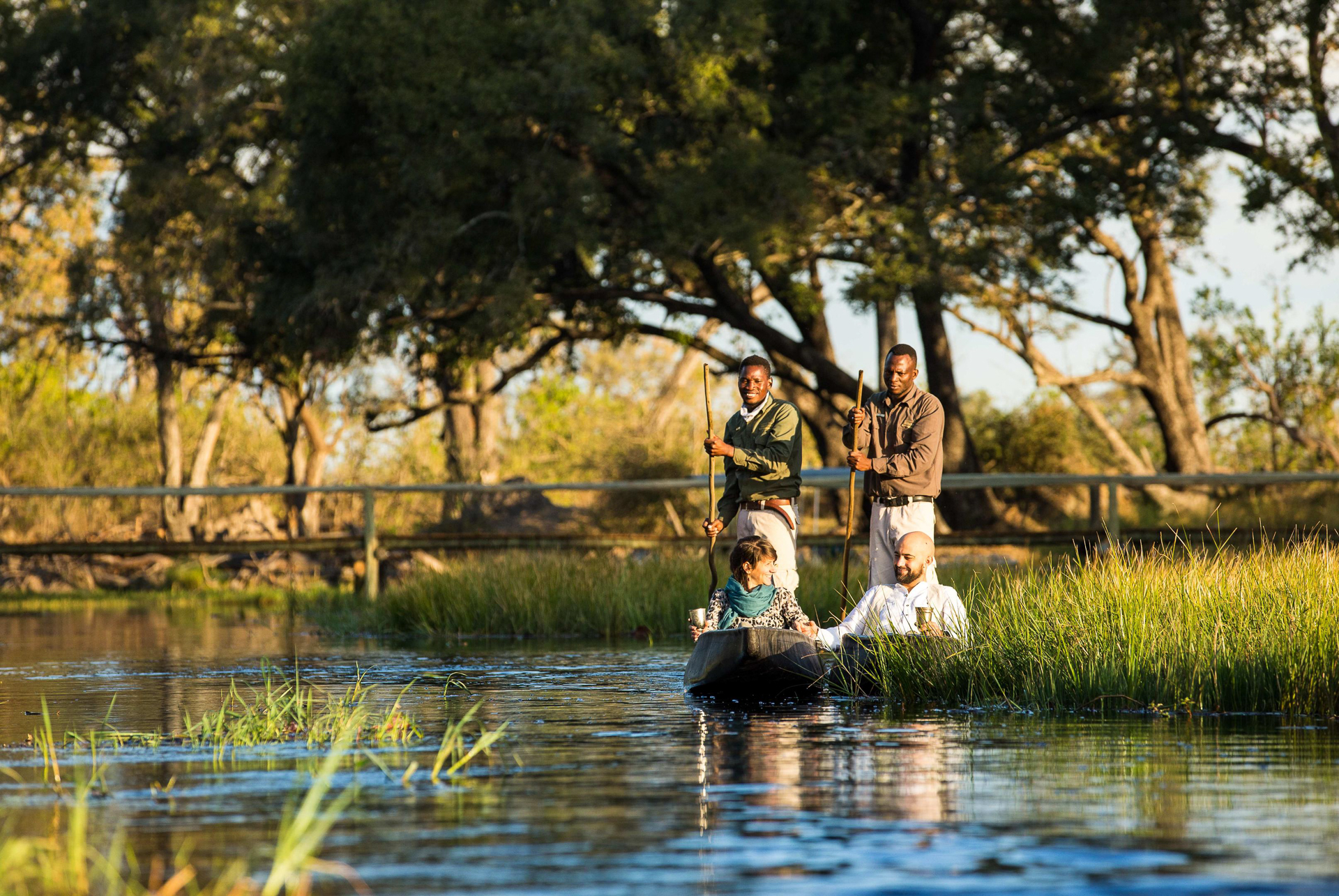
If you are here for the wildlife then the best way to get up close and personal with the animals is on a drive in customised open Land Cruiser.
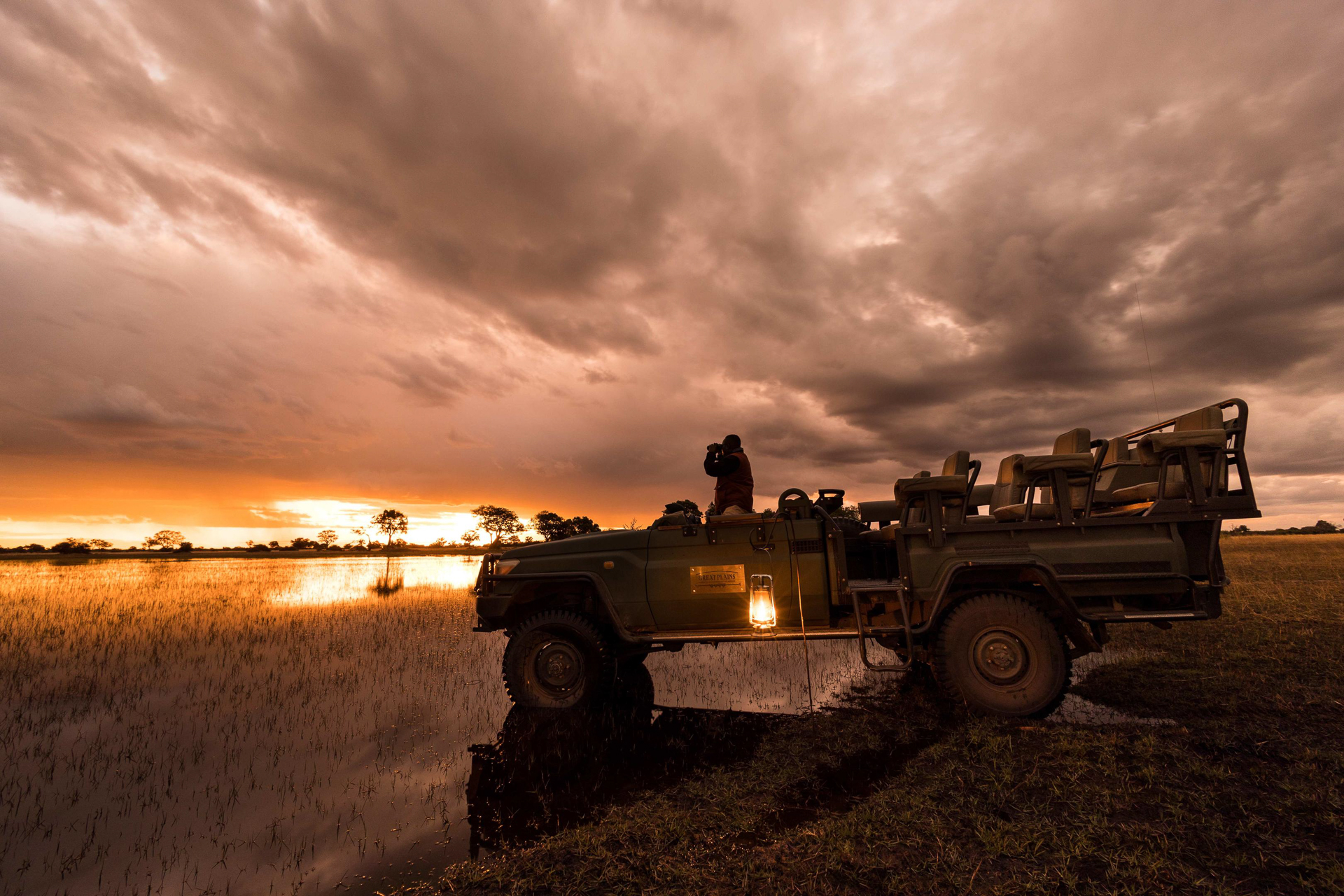
We can all recall the freedom of our youth when we were outside all day, making forts, catching tadpoles and climbing trees. We were all explorers of some kind, even if just in our suburban garden.
We explored, we discovered, we might have even gotten lost, but we always retuned the wiser and more enlightened.
Safaris with kids are much the same – a time to stimulate all the senses. Safaris open up a whole new world to us all, but for kids that world is even more enchanting. Exciting new animals are a huge part of a safari experience, but delving deeper into what lies in heart of the land and its people all the while learning and experiencing to the great satisfaction of kids (and parents). Stepping away from everyday life to build a traditional reed hut, or treasure hunting and practicing your newly learnt traditional bush survival skills is an experience we would all cherish. For kids, it is magical.
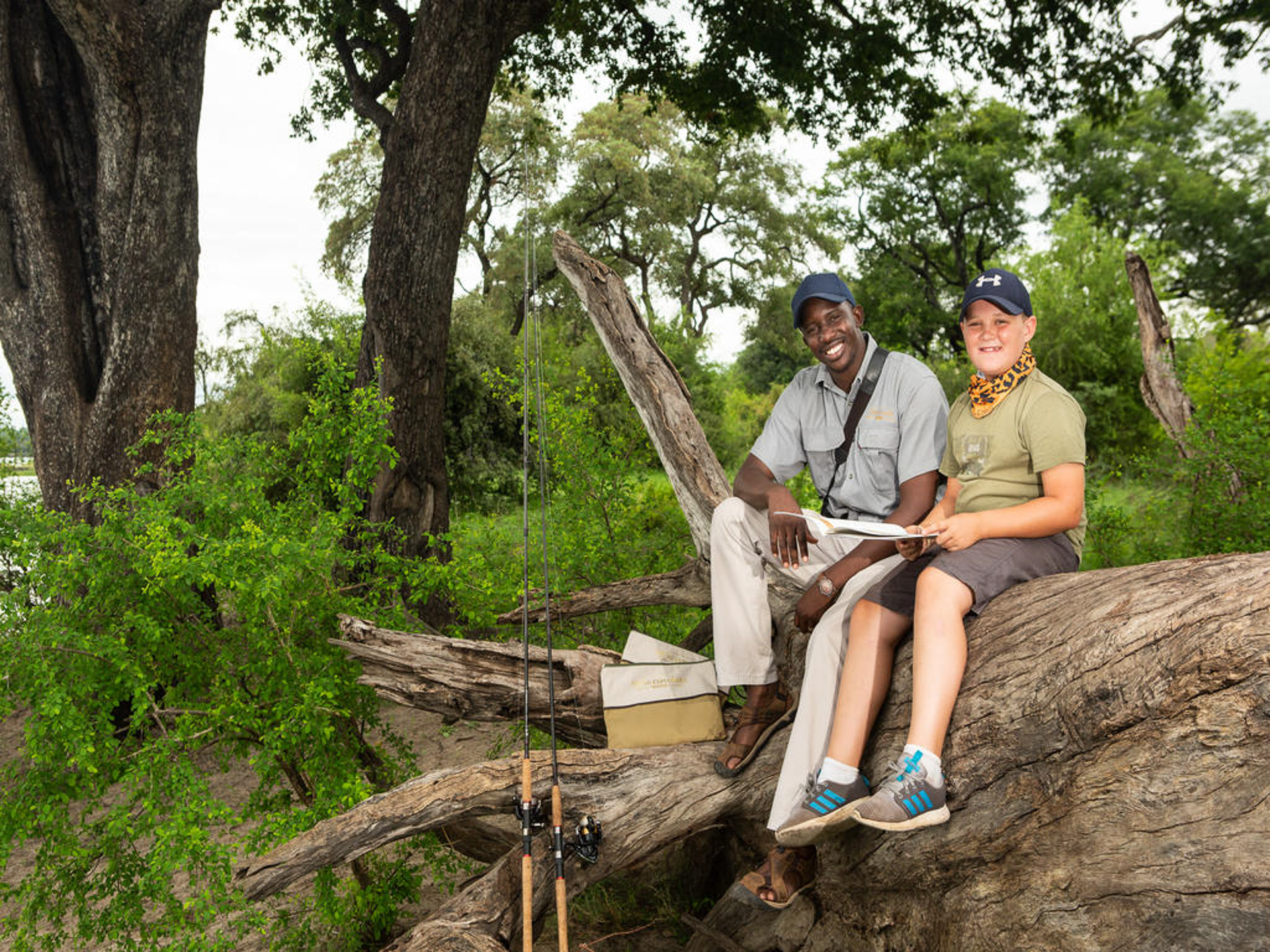
Great Plains is first and foremost a conservation organization that uses eco tourism as a tool to sustain conservation programs. We even coined a new name for what we do – “Conservation Tourism”. We define it as the use of quality led tourism experiences that are environmentally sound, with the benefits going specifically into making the conservation of an area viable and sustainable.
It is important to us that this is done without any negative influence on the land, on any species that uses that land, or, indeed, on any individual animal. We do not do conservation by triage, killing some to save the rest, because this is a defeatist and disrespectful way of interacting with nature.
Our model takes stressed and threatened environments, surrounds them with compassionate protection and intelligent, sustainable management, and funds them with sensitive, low-volume, low-impact, tourism. Communities are an intrinsic part of this model and benefit directly from it. The final piece of the puzzle is you – our clients and guests – who pay to visit the camps we create, and through doing so, become our valued partners and agents of positive change.
Our philosophy is grounded in the fundamental appreciation of the good in life… Good people, good staff, good decisions, good things we share and enjoy, but most of all we try to extend that “goodness” to our interactions with you, with wildlife, with nature and with the local communities which so depend on them